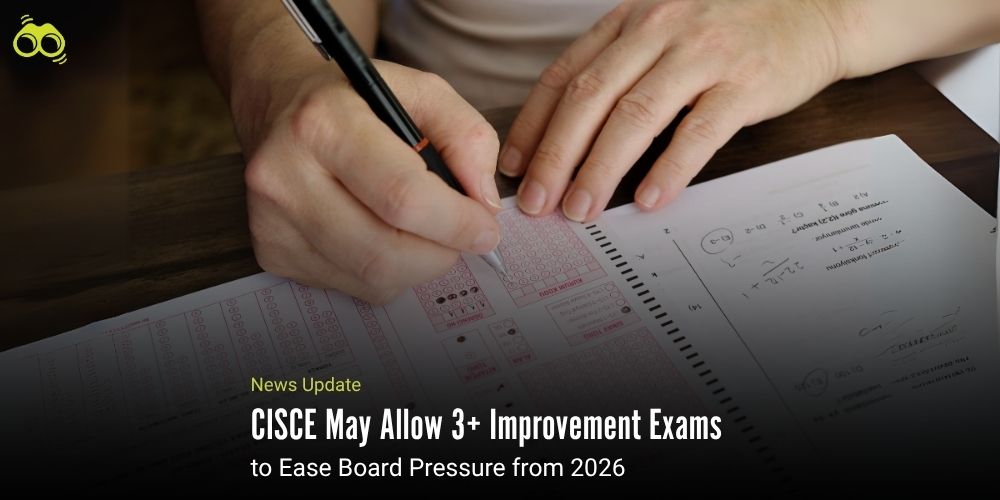Increasing Improvement Exams: A Step Forward, But India’s High-Stakes System Remains
Board Exam Reforms Aim to Ease Pressure, Yet True Learning Requires Broader Overhaul
The Council for the Indian School Certificate Examinations (CISCE) is reportedly considering expanding the number of improvement exams students can take, aligning with the objectives of the National Education Policy (NEP) 2020. The policy seeks to reduce the pressure of board examinations by introducing greater flexibility, thereby allowing students more opportunities to enhance their academic performance.
Currently, CISCE permits Class 10 and 12 students to appear for improvement exams in two subjects if they wish to improve their scores. However, an official has indicated that this limit may be raised to at least three subjects by 2026, with the possibility of further increases in the future. While this development reflects efforts to create a more student-friendly assessment system, the proposal remains under review and has yet to receive formal approval from the council.
The CISCE is expected to retain its July schedule for improvement exams, with the higher of the two scores deemed final. An official confirmed that the proposed expansion in the number of improvement papers would apply to both Class 10 and Class 12 students. This year, the Class 10 board exams were conducted from 18 February to 27 March, while Class 12 exams took place between 13 February and 5 April. In a related development, the Central Board of Secondary Education (CBSE) has proposed conducting two Class 10 board exam sessions from 2026, allowing students to appear in one or both. To facilitate this, the board has suggested a condensed schedule with only one to two days between papers. The first session is proposed to run from 17 February to 6 March, while the second would take place from 5 May to 20 May.
However, an official from CISCE reportedly stated that implementing two sets of board exams could be challenging for the council due to academic calendar constraints and the time required for students to focus on post-exam admissions. The official referenced the NEP 2020, which recommends reducing the "high-stakes" nature of board exams by permitting students to take exams twice each academic year, once as the main exam and once as an improvement attempt if desired. Additionally, the NEP advocates exploring alternative exam models to alleviate student pressure and reduce dependence on coaching, suggesting options such as annual, semester, or modular exams that cover smaller portions of material shortly after course completion. These proposed changes could reshape the structure of school examinations, ensuring students have greater flexibility while maintaining academic rigour.
Editor’s Note:
The proposed increase in improvement exams by the CISCE marks a move towards a more flexible assessment system. Allowing students to retake exams in more subjects would help reduce the pressure of board exams and give fair chances to improve. However, while this aligns with the National Education Policy (NEP) 2020, it only partially addresses the deeper problem of India’s rigid, high-stakes exam system. Although these efforts are welcome, exam formats need to evolve further to support real learning instead of just testing how well students perform under pressure. The CBSE’s plan to hold two exam sessions aims to reduce stress but faces challenges due to the tight academic calendar. Rather than simply allowing more exam attempts, policymakers should focus on diverse assessment methods like semester or modular exams, which offer continuous, lower-pressure evaluation. The key issue is not how often students retake exams, but how exams can better assess true understanding over memorisation. Without this, reforms may only bring short-term relief instead of lasting improvement.
Skoobuzz believes that meaningful reform requires a fundamental shift in exam design to prioritise learning over rote performance.














0 Comments (Please Login To Continue)